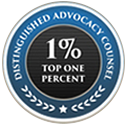According to the Bureau of Labor Statistics, lifting injuries comprise nearly one-third of job-related mishaps throughout the country. Back injuries from lifting are the second most common work injury in the United States.
Even though lifting injuries are common, it does not mean that they are minor. Workers in Pennsylvania can miss an extended amount of time due to a lifting injury, and some may not even be able to return to their previous jobs at all.
Lifting injuries can present complex workers’ compensation claims. For help with your workers’ compensation matter, contact our experienced work injury attorneys at Gibbons & Crichton, Personal Injury & Accident Lawyers.
Lifting Must Be Done Carefully and with Forethought
Under OSHA regulations, employers must take safeguards and provide training to employees who must routinely lift heavy objects. Unfortunately, employers do not always follow OSHA rules. Some employees may be pushed to continuously lift heavy loads without breaks or the necessary personal protective equipment.
Even if an employer follows all rules, employees may still be at risk due to the physical nature of heavy lifting. Workers’ compensation is a no-fault legal system. If you are injured in the scope of your work duties, you can file a claim in nearly all circumstances.
Even if you did not use proper lifting technique, you may still be compensated for your injury. At the same time, your employer is immune from nearly all personal injury lawsuits arising from the accident.
Safely Lifting Heavy Items at Work
Workers are often asked to handle materials manually on the job. There is only so much of the labor that machinery can perform. Even when working with machinery, employees may be asked to repeatedly lift heavy items. Both the employer and the employee may need to implement their safety techniques to properly lift.
There is a formula with voluntary guidelines for how much a worker can safely lift on the job based on their body weight and the angle of the lift.
The average worker may be able to safely lift 51 lbs, but their ability to lift depends on their age and physical condition. Some workers are more likely to be injured than others. For example, workers who have been continuously lifting for a longer time may be more prone to injury because their bodies may be worn down from work.
The Different Types of Work-Related Lifting Injuries
Lifting injuries can either be sudden (resulting from an awkward movement or lifting angle) or happen over time. When workers frequently use the same muscles and body parts to lift objects, they are more likely to suffer an overuse injury.
Workers may suffer the following injuries from lifting heavy objects:
- Bursitis
- Tendonitis
- Tennis elbow
- Muscle strains
- Ligament tears
- Herniated discs
- Rotator cuff tears
- Patellar tendonitis
Many of these injuries are debilitating. Even after surgery and rehabilitation, a worker may never regain the strength that they had before the injury. Those who do recover may require an extended period of treatment and convalescence before they can return to the job. Even when they come back to work, they may still require time to physically readjust to their duties.
Lifting injuries can keep you from doing your job for an extended time. Your injuries may even be permanent, meaning that you cannot do heavy lifting again in the future. If your health condition keeps you from being able to work, you can file for workers’ compensation benefits under Pennsylvania law.
There are four types of disabilities for which you may be compensated:
- Temporary partial disability
- Temporary total disability
- Permanent partial disability
- Permanent total disability
Workers’ Compensation Benefits for Lifting Injuries
After suffering any lifting injury at work, the first thing that you need to do is report your injury to your employer. Under Pennsylvania law, you have 21 days to report your injury to your employer. If you have not made a report within 120 days after you knew or should have known of the injury, you are barred from receiving workers’ compensation benefits.
You may experience issues if you suffered an overuse injury that developed over time. Your employer may claim that you did not give them timely notice, so it’s crucial to report your condition on time.
Your workers’ compensation benefits would include the following:
- Up to 2/3 of your average weekly wage, subject to a statutory cap
- Reasonable medical costs to treat your condition
- Vocational training to retrain you to perform a new job
At the outset, you would likely be filing for workers’ compensation benefits temporarily. It is only after you undergo medical treatment, and a subsequent health examination, that you may learn of a permanent disability.
Restrictions on Work When Receiving Workers’ Compensation Benefits
Once you reach the point of maximum medical improvement, a doctor may determine that you can return to work in some capacity. However, you may still be subject to restrictions on what you can do on the job.
In some cases, you may be cleared to return to work on light duty. Your employer would not be able to require you to lift heavy objects if they are beyond what you are capable of based on your diagnosis.
In these cases, your employer may give you other job functions, such as a desk job. If you are told that you can return to work, and the employer has job duties for you that are within your restrictions, you must perform them. Otherwise, you would risk losing your workers’ compensation benefits for lifting injuries.
Contact a Philadelphia Workers’ Compensation Attorney Today
You may encounter numerous legal issues when you have suffered lifting injuries at work. For example, you may need to negotiate a settlement or fight to remain out of work when you still believe you are injured.
The experienced workers’ compensation attorneys at Gibbons & Crichton, Personal Injury & Accident Lawyers can represent you throughout the legal process, working for you to obtain the outcome that is in your best interest. For a free consultation, and to start your case today, call 215-274-0173 or message us now.














